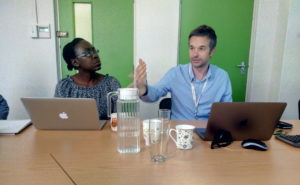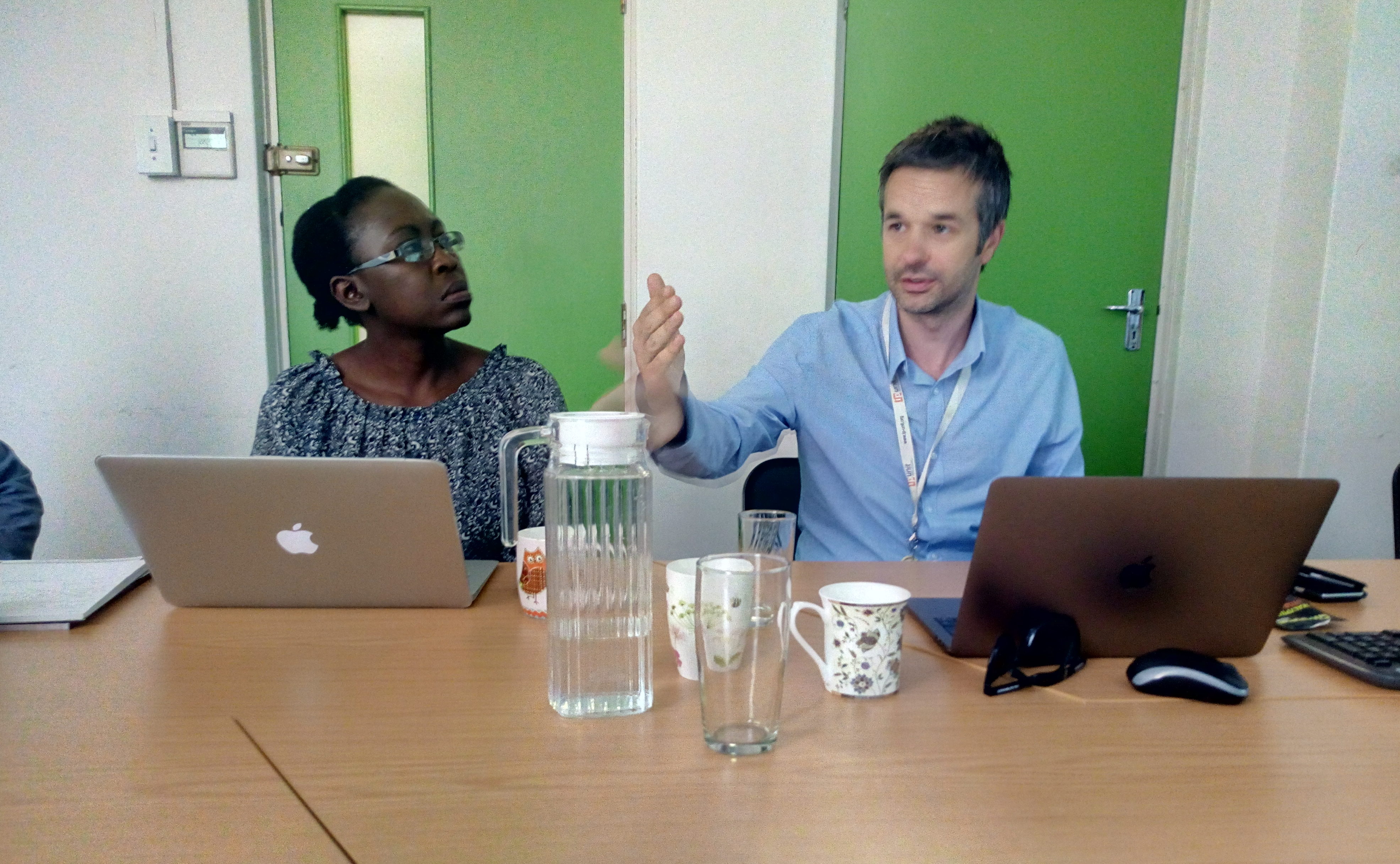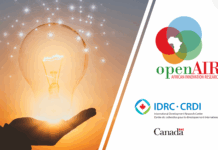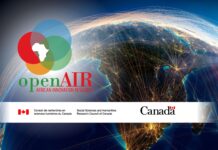By Desmond Oriakhogba
Recently, Open AIR participated in a workshop which focused on the integration of gender perspectives into research projects aimed at promoting social justice, inclusivity and openness in Africa. The workshop took place at the Centre for Innovation in Learning and Teaching (CILT), University of Cape Town, South Africa. Open AIR was well represented in the workshop by Dr Tobias Schonwetter and Prof Caroline Ncube. Other participants in the workshop included Jeff Watson (IDRC Consultant), principal investigators of the Digital Open Textbooks for Development (DOT4D) project, and myself.
Synergy between Open AIR and DOT4D projects
The workshop afforded an opportunity for the lead researchers of Open AIR and DOT4D to share feedback from Jeff Watson (IDRC Consultant) and other participants to:

- highlight and discuss the main focus of their respective research projects and how gender-related dimensions are being incorporated into the projects;
- explore synergies between the activities and challenges faced in each project; and
- identify possible prospects for collaboration and future needs in terms of consultation around incorporating gender-related issues in their respective research projects.
The workshop identified several prospective synergies between Open AIR’s research projects and the DOT4D project. This was especially the case in the promotion of gender equality in Africa and the integration of gender-related dimensions within the overarching research focus of each project. This was aptly stated by Jeff Watson (IDRC Consultant) in his feedback on the workshop:
“I thoroughly enjoyed learning more about your respective projects and about the potential synergies between them. I am looking forward to continuing to work with all of you as you move forward in your research timelines…all IDRC-funded projects [need to] be aware of gender issues, and should also be specific in their methodologies and outcomes…that is, they [must be] projects that help move policy, practice, systems, institutions, etc. toward gender transformation.”
Beyond the potential synergies highlighted above, it was apparent from the workshop that Open AIR is already doing far more than I imagined in the integration of gender-related dimensions. Aside from our gendered outlook, as manifest in our team profile, Open AIR has already produced a briefing note to guide our researchers on integrating gender-related dimensions into our ongoing and future research. This briefing note substantially aligned with Jeff Watson’s statement above.
Importantly, with assistance from funders, Open AIR researchers are already addressing the gender dimensions of our overarching research questions using case studies focusing on gender equality and the empowerment of innovative and creative women and girls in Africa.
How the workshop impacts my research

I had the privilege of being invited to the workshop as part of Open AIR’s New and Emerging Researcher Group (NERG) and as a QEScholar currently working on research aimed at addressing the gender-related dimensions of Open AIR’s overarching research questions. During the discussion of Open AIR’s work, I had the opportunity to talk about my ongoing research and gained robust insights from participants at the workshop.
My research (which is available here) focuses on Zulu women bead makers in the KwaZulu Natal Province of South Africa and how to ensure sustainable empowerment for these women bead makers. Among the Zulu people, bead making is traditionally done by women.
Some of the insights from participants at the workshop included issues I was unaware of before the workshop. These issues, have been very useful in shaping my ongoing conversation with research subjects in the field. For instance, the workshop highlighted the need for me to watch out for the views of Zulu men about bead making and male participation in the trade. Also, I was made aware to pay attention to the views of the research subjects about a male researcher conducting research on a traditionally women’s craft.
My research findings on the Zulu women bead-work will be communicated in due course. That said, I am already able to note that the Zulu bead making trade is quite distinguishable from a traditionally male-dominated craft I am also studying, that is Benin bronze casting by people in Nigeria.
Equally, this workshop influenced my research on Benin bronze casting as well. Customarily, the Benin bronze casting craft is limited to men of bronze casting families. Women’s participation in the art is regarded as taboo. Thus, while these research subjects may not have had issues with a male conducting research on their craft, male researchers such as myself should also be interested in getting the views of Benin women about their view of bronze casting and the customary exclusion of them from this craft.










